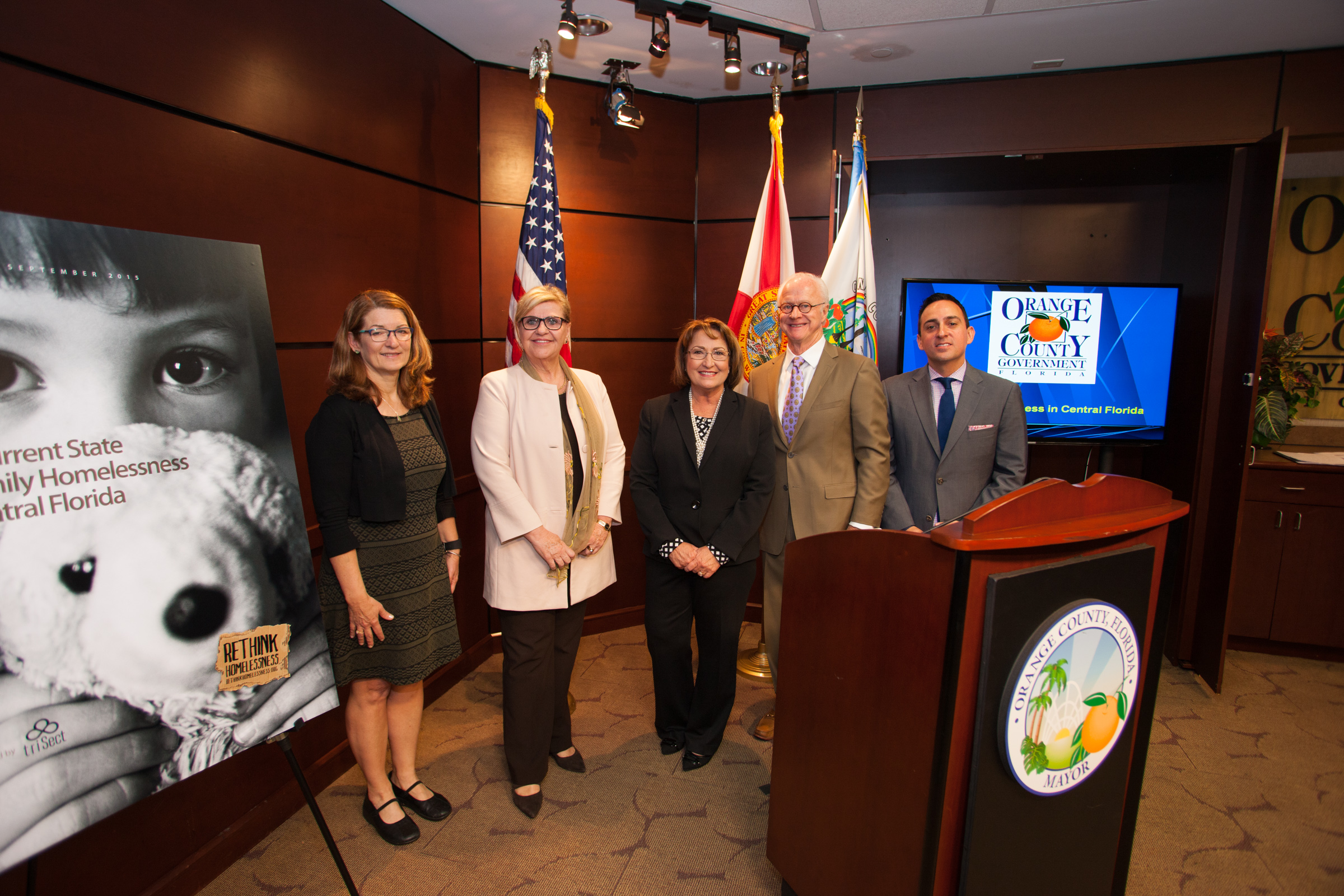
Central Florida Commission on Homelessness Releases Current State of Family Homelessness in Central Florida Report
The Central Florida Commission on Homelessness (CFCH) and Mayor Teresa Jacobs announced the release of a recent report commissioned by Orange County titled, “The Current State of Family Homelessness in Central Florida.” The report provides new details and statistics that document the challenges that children and families in Orange, Osceola and Seminole counties face in terms of stable housing and provides six key recommendations that will be reviewed by the CFCH Family Homelessness Committee.
“As a community, we’ve long been committed to caring for those in need,” Mayor Jacobs said. “And today, as too many in our region continue to struggle to find stable housing, we must be sure that our safety net is stronger than ever.”
Mayor Jacobs, who serves as the co-chair for the CFCH, along with regional community leaders, shared details of the extensive report authored by Barbara Poppe, a national expert on homelessness and former executive director of the United States Interagency Council for Homelessness.
Homelessness has become a top priority for leaders throughout the Central Florida region, with significant efforts dedicated to supporting the chronically homeless and veterans.
In 2014, Mayor Jacobs asked the CFCH to create a subcommittee dedicated to the issue of Family Homelessness, to be led by long-time child advocate Dick Batchelor. It would be charged with researching family homelessness in Central Florida and identifying solutions to help homeless families.
Batchelor and the Committee, of more than 30 leaders from Orange, Osceola and Seminole counties, solicited the expertise of Poppe to lead the research team and author the nearly 70-page report. The report offers new information, detailed data and potential systemic solutions that, when combined, will have the potential to make a lasting positive impact.
Poppe’s research found that one in 17 children in Central Florida will experience some episode of homelessness this year and that too many families are only one major life event or crisis away from homelessness. The report captures the numbers of children and families who meet the definition of homelessness as defined by the U.S. Department of Housing and Urban Development and the broader definition of the U.S. Department of Education, which includes children who live in hotels or with other families.
During the news conference, Poppe likened the work ahead to other successful and significant initiatives that were achieved when leaders across Central Florida unified toward a common goal.
In addition to a workshop conducted later in the day by the Family Homelessness Committee, later that week, regional leaders from the CFCH departed for a fact-finding mission to Salt Lake City to meet with key community leaders who successfully reduced the number of homeless families in their community.
Mayor Jacobs commended Poppe who continues to dedicate her expertise to the Central Florida community. In September she helped the CFCH unveil “The Path Forward: Rethinking Solutions for Homelessness in Florida,” which was funded by grant through J.P. Morgan Chase and provided a comprehensive roadmap for creating policies and programs aimed at making homelessness rare, brief and one-time, especially among youth and veterans.
Mayor Jacobs also applauded the efforts of those in the Central Florida community who work every day to make a difference in the lives of vulnerable families, with particular thanks to the leadership of Andrae Bailey, who serves as the President and CEO of the CFCH, and Dick Batchelor, who leads the Family Homelessness Committee.
“Our community should have no children who are on the streets without housing, or a place to call home,” Batchelor told reporters during the news conference. “After reviewing the recommendations of the report, the Committee will offer implementation strategies to the CFCH for approval.”
